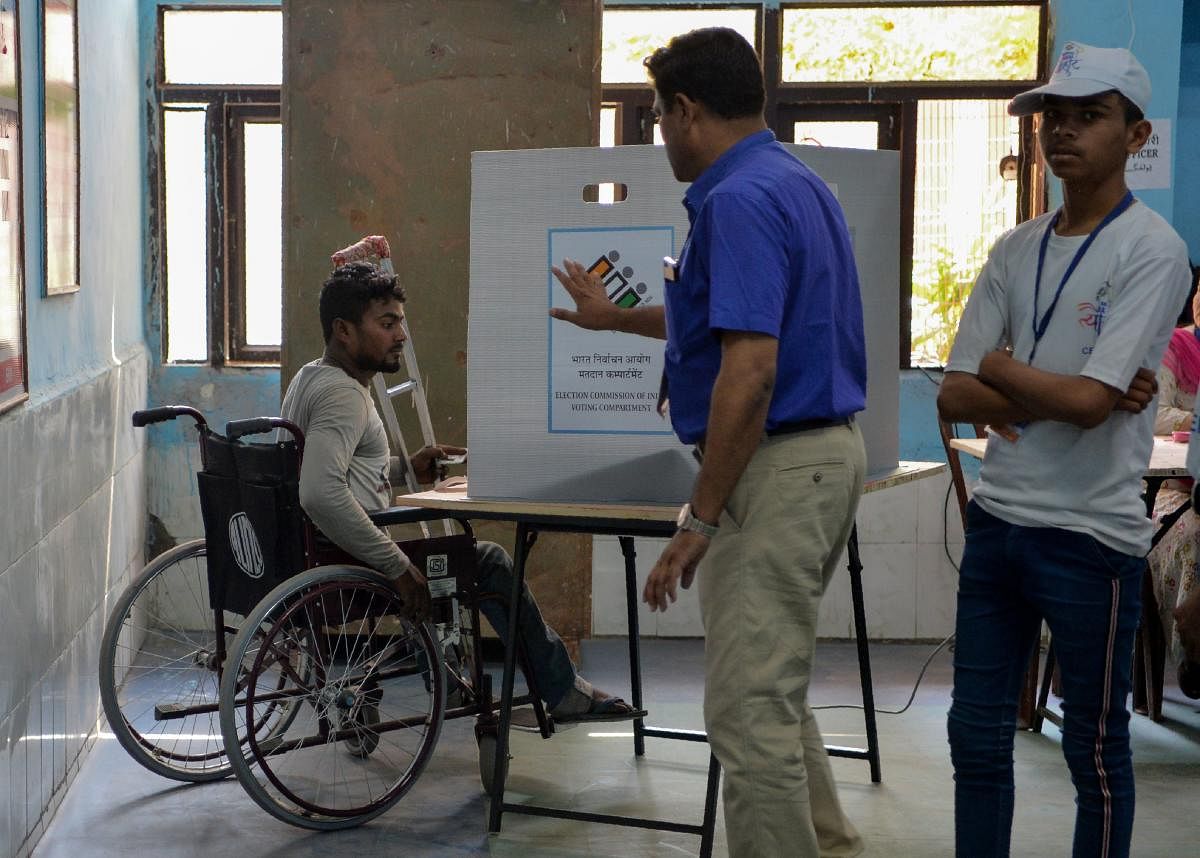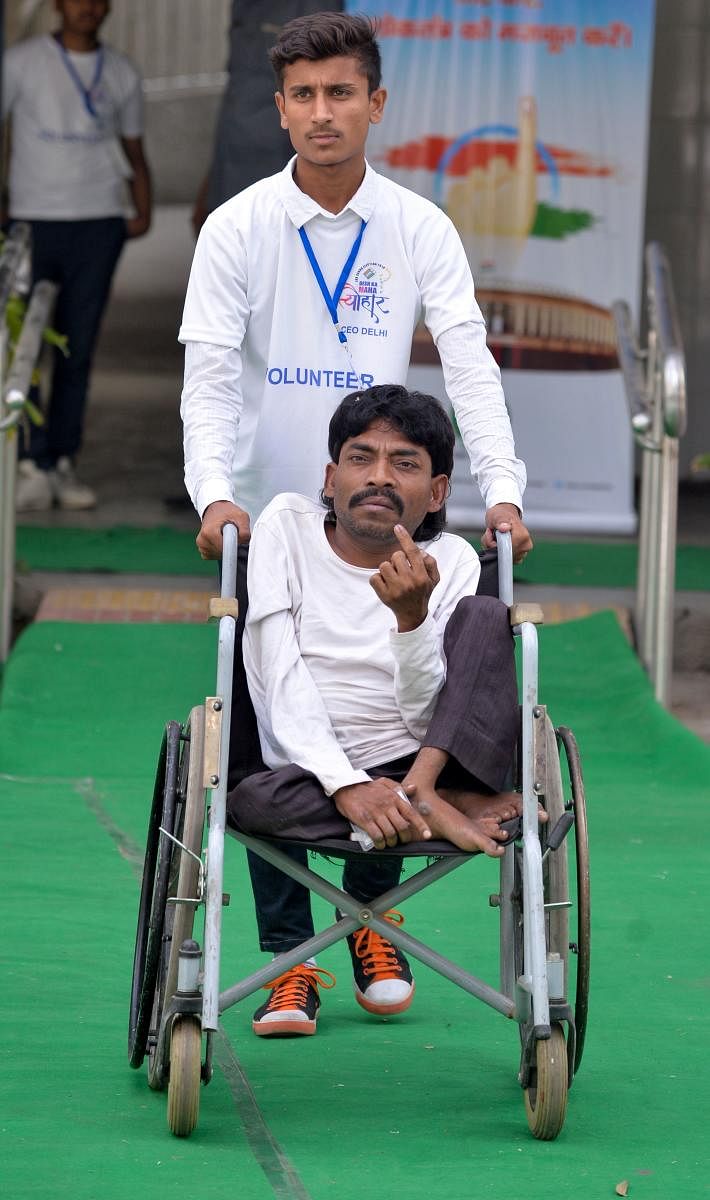

Accessibility features for voters with disabilities, including Braille ballot paper, disabled-friendly toilets and ramps were missing at several polling booths across the country during the Lok Sabha polls, according to a first-of-its-kind audit.
Conducted by the National Centre for Promotion of Employment for Disabled People (NCPEDP), the audit was set against the backdrop of the Election Commission declaring the 17th Lok Sabha Polls as 'Accessible Elections'.
In Guwahati for instance, the polling booth was on the upper floor in a building without an elevator.
Ironically, Arman Ali, Executive Director of the NCPEDP, who announced the audit, himself waited at the voting premises for two hours till polling officials actually hauled him upstairs to vote, according to the Report on Accessibility during Elections 2019.
Based on data collected by disability sector members across the country, it was found that ramps at polling booths did not adhere to standardized design of 1:12 gradient.
"They were rickety, wooden, temporary, too steep which were difficult for wheelchair users to access. Such ill constructed ramps made it difficult to push the wheelchair up. Some ramps were unsteady which compromised with safety of the disabled person," the report stated.
The report pointed out that Malviya Nagar 054, St Edmunds School, polling booth numbers 165, 166,167 and 168 in Jaipur had narrow pathways and damaged roads with debris at exits.
Ramps in majority of the booths in Gujarat were not up to standards, the report stated.
When it came to the lighting inside polling booth, most of them were up to standard barring booth numbers 054, Malaviya Nagar in Jaipur and 53, Simhadri Panda MPL high school in Odisha, which were inadequately lit to an extent that people with normal vision found it difficult to see, making it all the more challenging for a person with low vision, the report said.
The provision of Braille Ballot paper, while available at a few booths, was absent in many others. Only a handful of booths like number 59 Central School in Karkardooma, Delhi and booth number 194, in Talabaranga UP school in Odisha were reported to have Braille ballot paper.
Additionally, a majority of booths in Gujarat were also equipped with Braille. This is a step forward, given that persons with disabilities featured on India Census as late as 2001, five decades after independence.
Washrooms being a basic necessity. A majority of the polling booths across the country did not have disabled-friendly toilets.
For instance, washrooms were inaccessible at polling booths like that of booth numbers 116,117,118 in Amritsar East.
Despite the scorching heat at most polling booths, water dispensers were not at an adequate height for wheelchair users. However, such accessibility arrangements for persons with disability were of good standards at polling booths in Goa, the report stated.
One of the most important steps that ensure accessibility across the country is training and sensitizing volunteers or booth level officers.
Simadri Panda MPL high school, booth number 56 in Orissa, was one such booth wherein the booth level officer was "rude" and did not behave in a proper manner with PWD and had no information on disabilities.
There was also lack of volunteers on ground for assistance at Polling Booth number- 116, 117, 118 in Amritsar East.
Accessibility arrangements in states like Goa and Gujarat (Sabarkantha, Anand) showed huge improvement with wheelchair friendly vehicles being made available to transport persons with disabilities to polling booths.
Arman Ali, the convenor of the audit said, "This audit is just a beginning and it only shows us accessibility is not about ramps and wheelchairs, it is much more and the entire ecosystem needs to be involved. There was an honest attempt made by the Election Commission of India. They also hired a person with disability as consultant and engaged NGOs to make an impact. However, change will happen, only when disability is not looked at in isolation and synergised as part of everything that involves masses."